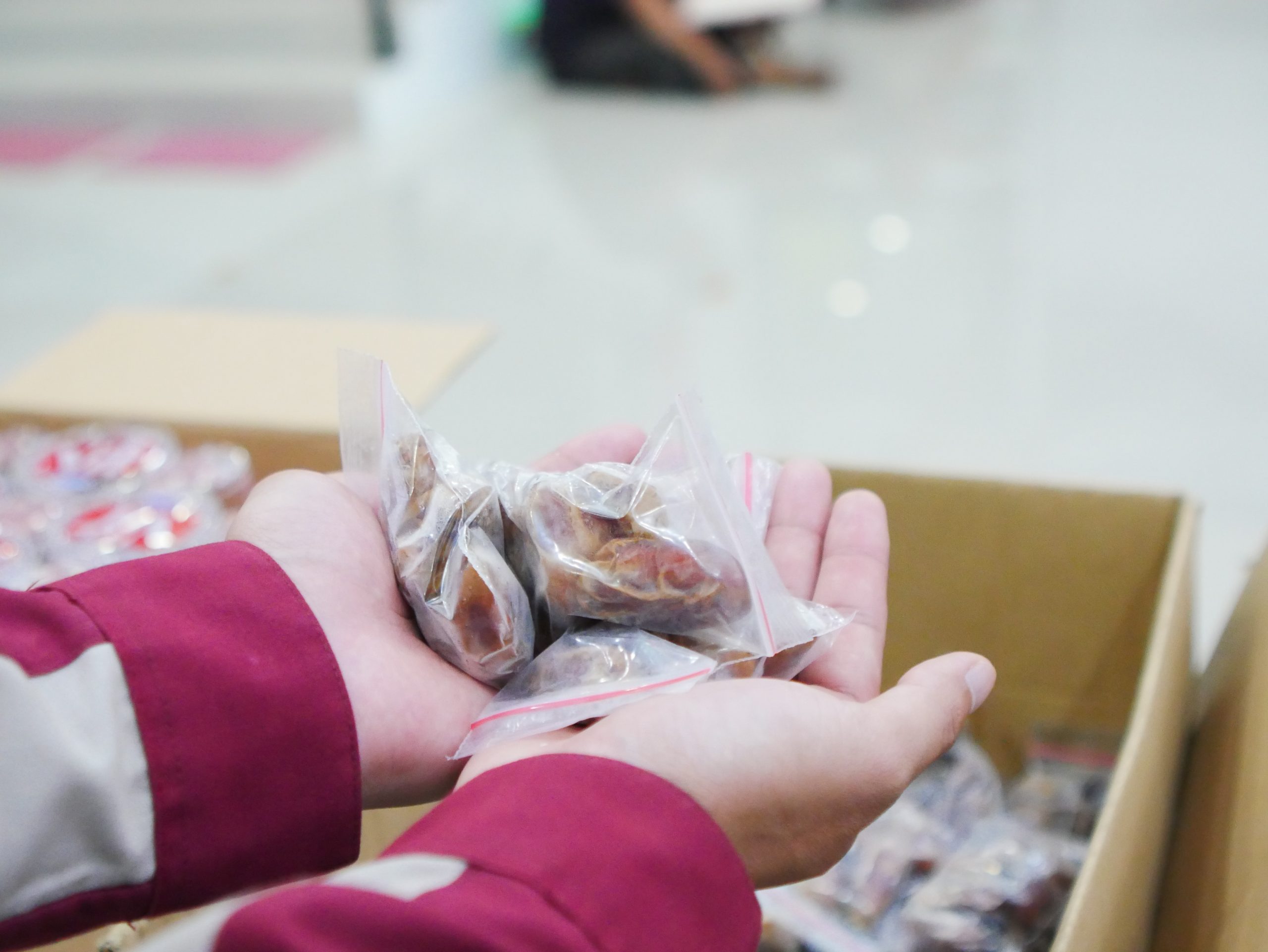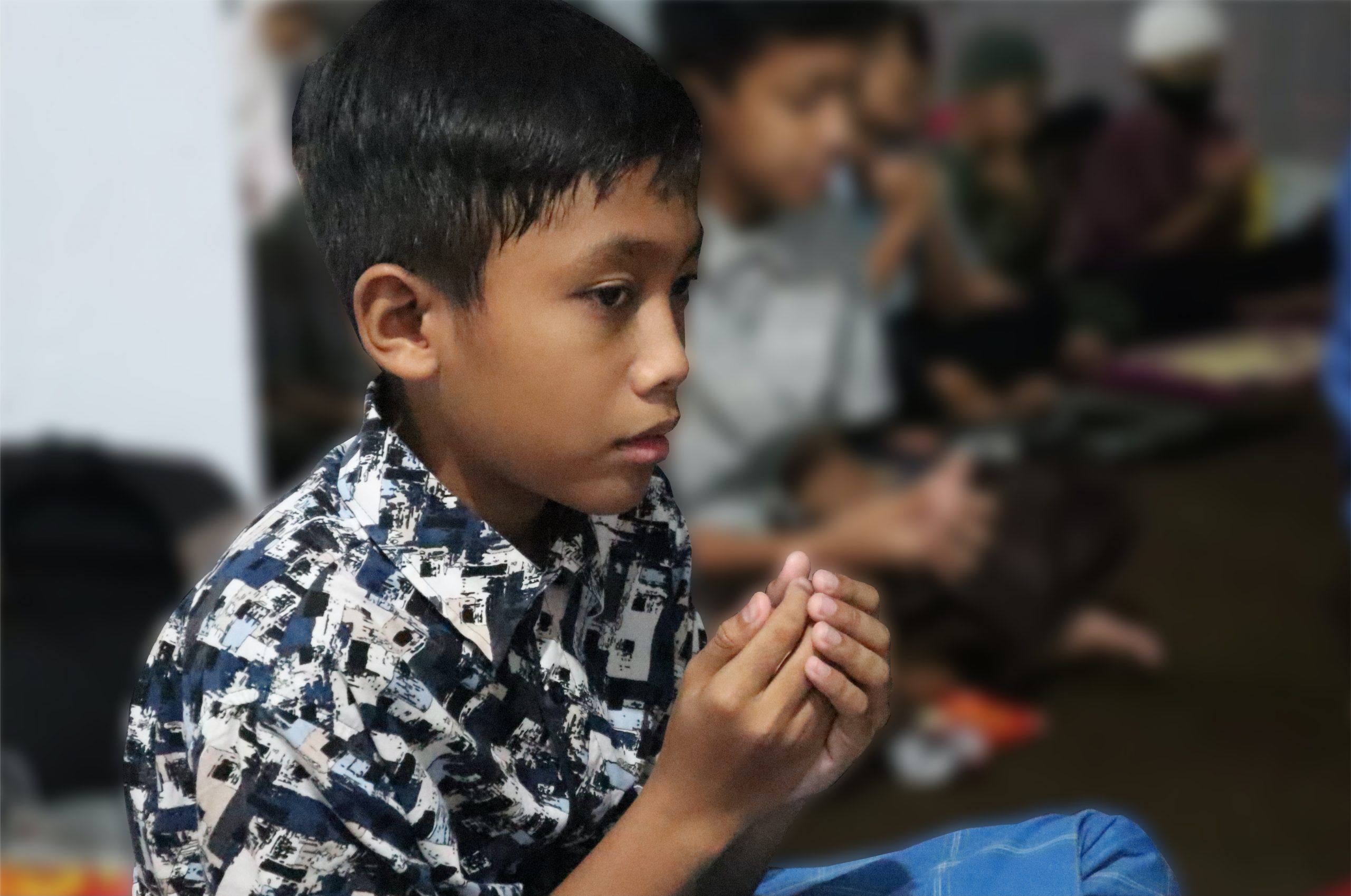#Life
Beyond The External Trappings: Teaching Children The True Essence Of Ramadan
Published
By
Eman Ahmed
Ramadan preparations can be both exciting and nerve-wracking for Muslim families. There’s a sense of anticipation and joy as we plan special meals, festive decorations, and fun activities for the holy month. Children get particularly excited, eagerly counting the days until the start of Ramadan and proudly announcing their plans to fast half or full days.
At the same time, there’s a nagging sense of nervousness that accompanies these preparations. How will we manage taraweeh or qiyam with the kids? Did we schedule the iftar invitations that need to be reciprocated this year? And let’s not forget the ever-present fear of accidentally running out of dates halfway through Ramadan, or not making Ramadan memorable enough for the kids to make them forget about Christmas.
What Are We Really Prioritizing?
On the other hand, social media algorithms prey on our innermost thoughts and emotions, especially during Ramadan. Our Instagram feeds are bombarded with meticulously curated images of Ramadan-themed activities, pre-planned Iftar recipes, and opulent home decor that can make even the most laid-back Muslim parent feel pressured to keep up with the hype. But do we need all this fanfare to make Ramadan special? Will our families’ Ramadan experience be any less blessed without matching Ramadan-themed plates or a decked-out living room? As we navigate the endless stream of ads, we must ask ourselves: are we prioritizing the essence of Ramadan or merely chasing the next Insta-worthy post?
Keep supporting MuslimMatters for the sake of Allah
Alhamdulillah, we're at over 850 supporters. Help us get to 900 supporters this month. All it takes is a small gift from a reader like you to keep us going, for just $2 / month.
The Prophet (SAW) has taught us the best of deeds are those that done consistently, even if they are small. Click here to support MuslimMatters with a monthly donation of $2 per month. Set it and collect blessings from Allah (swt) for the khayr you're supporting without thinking about it.
Once upon a time, I was a bona fide Pinterest mom, crafting wholesome decorations and interactive activities for Ramadan like it was my full-time job. But one year, something changed. Instead of looking forward to the holy month with excitement and anticipation, I grew apprehensive at the thought of the sacred month, feeling an overwhelming pressure to keep up with ever-evolving trends and domestic standards. What was once a charming child-made ‘Welcome Ramadan’ garland had transformed into an opulent, expensive wreath.
The real question isn’t whether we should or should not decorate, however. It’s about whether our priorities are aligned with the true essence of Ramadan as intended by Allah
. When we lose sight of the spiritual significance of the month and instead focus solely on the external trappings, we risk shaping our children’s perceptions of Ramadan in a way that misses the mark entirely.
In a recent conversation among mothers, decorating for Ramadan arose out of a perceived necessity, given children’s tendency to compare their religious observances with others like Christmas or Halloween. The desire to create a joyous and memorable holiday for children, fostering a sense of motivation to engage in worship and earn spiritual rewards, is likewise commendable. However, the danger arises when we tip the scales too heavily towards external ornamentation, neglecting the internal spiritual experience. When Ramadan feels more like a chore than a blessing, and we prioritize the flashiness of our decor over the depth of our connection with Allah 
The Companions of the Prophet 

Giving Spirituality The Limelight



Below are just a few examples of how the spiritual experience of Ramadan should take center stage and how our focus on this internal dimension can help us reap the true benefits of this blessed month. Here are three considerations that might help you approach Ramadan in a mindful manner as a Muslim parent.
1. Pay attention to the hidden curriculum at home
As parents, we may think we have control over what our children learn, but the environment they occupy also plays a significant role in shaping their perspectives and attitudes. The hidden curriculum is everywhere, even in the comfort of our own homes. Therefore, it’s important to be mindful of what messages we unintentionally convey to our children as we prepare for Ramadan. Are we showing them increased stress and a frenzy of shopping trips? Or are we setting an example by increasing our fasts in Sha’ban and planning our worship for Ramadan? Remember, the hidden curriculum can reinforce or contradict our teachings and parenting, so we must model and integrate what we want our children to learn.
2. Shift the focus away from material possessions during Ramadan
It is easy to get caught up in the external aspects of Ramadan, like the food and festivities; but we must remember that Ramadan is an internal act of worship at its core. We need to highlight this principle for our children, so they can correctly understand the different types of worship that are favored by Allah 


3. Encourage an internal drive to engage in Ramadan
During the early years, children develop a sense of intrinsic motivation to learn, resulting from innate curiosity and mastery motivation. Unfortunately, we often diminish this motivation by overemphasizing extrinsic rewards throughout the primary years. When we indulge our children with “things,” the learning pattern and inner motivations created during infancy slowly become replaced. However, research continuously shows that intrinsically motivated children experience more enjoyment from their learning, gain greater knowledge and insight, feel better about themselves, and are more likely to persist in goal-directed activities1https://www.researchgate.net/publication/225914131_Fostering_Intrinsic_Motivation_in_Early_Childhood_Classrooms. Therefore, it’s encouraged to prioritize intrinsic motivation in our children and create an environment that fosters their love of learning and unique exploration.
4. Transform Ramadan into a mastered skill.

The dreaded phrase “I am hungry” can send shivers down the spine of even the most patient of parents, causing us to put off training our little ones for the strenuous acts of worship that lie ahead. But there is hope. By conscientiously integrating practical guidelines into our parenting, we can foster an atmosphere of joy, readiness, and enthusiasm around Ramadan. Above all, through planning and supporting the natural developmental process, we can bestow upon our children an inherent yearning to worship Allah 
Here are some practical guidelines for spiritual Ramadan readiness during the early years.
Re-frame your mindset: Fasting is a learned skill and should be approached with the mentality of instilling the resilience to worship Allah 

– 0-3 years of age: During this critical developmental phase, children are devoted to comprehending the intricacies of the world around them, with language as a vital tool for interpretation. It is encouraged to enrich their vocabulary concerning Ramadan-related subjects. This may be achieved through the art of storytelling, imparting simple terms of the Sunnan exemplified during Ramadan. As early as three years of age, parents may lean on activities that teach the practice of delayed gratification to inspire the fundamental concept of fasting. Science-based activities such as baking and gardening are a great way to practice delayed gratification with children during those years.
– 4-6 years of age: During these formative years, children are engrossed in acquiring the ability to classify objects and concepts, discern interconnections between entities, and apply logical reasoning. Hence, it’s an opportune time to practice fasting by gradually delaying meals. Their cognitive capacities have evolved to acquire and retain information more efficiently, making it ideal for keeping track of fasting requirements and conditions. With consistent practice throughout the month, children will gain a deeper understanding of fasting from a fundamental point of view.
– 7-9 years of age: During this stage, children become adept at comprehending more complex concepts, including metaphor and symbolism. Their cognitive abilities enable them to engage in hypothetical scenarios and grasp their actions’ implications. Therefore, this is a great time to delve further into fasting fundamentals and explore Ramadan’s spiritual significance. Parents can encourage skipping meals to condition children’s physiological capabilities to adapt to the rigors of fasting in the years ahead. In addition, parents can motivate their children to establish fasting objectives beyond conventional ones, such as nurturing their minds and souls. Teaching children to display kindness, avoid idle activities, and monitor their language can be excellent techniques to prepare them for Ramadan.
– 10- 12 years of age: At this stage of maturation, children can efficiently plan and organize their daily activities. They possess the cognitive skills to set objectives, establish strategies to attain those objectives, and scrutinize their advancement toward those goals. This is the ideal time to encourage children to take the reins in their fasting regimen while providing them with the necessary support and guidance. They have received adequate preparation and are primed to undertake fasts like a pro. It’s time for them to shine! Though parents may perceive it as a rehearsal if their child has not yet attained puberty, from the child’s perspective, it’s the official time to commence their fasting journey. Please remember that if a child reaches puberty before age 10, their development timeline supersedes age-based guidelines.
In closing, it’s important to remember that the true essence of Ramadan lies in spiritual preparation and connection with Allah 


Need further support?
If you’d like to learn more practical tips on how to build your child’s intrinsic motivation to worship during the early years, join my weekly newsletter here. And if you are looking for Islamic parenting and education for you and your child, please join the waitlist here.
Related reading:
– To Decorate Or Not To Decorate – Is That The Ramadan Question? – MuslimMatters.org
– Best Ramadan Ever: Talking To Kids About Fasting/Delayed Gratification – MuslimMatters.org
Keep supporting MuslimMatters for the sake of Allah
Alhamdulillah, we're at over 850 supporters. Help us get to 900 supporters this month. All it takes is a small gift from a reader like you to keep us going, for just $2 / month.
The Prophet (SAW) has taught us the best of deeds are those that done consistently, even if they are small. Click here to support MuslimMatters with a monthly donation of $2 per month. Set it and collect blessings from Allah (swt) for the khayr you're supporting without thinking about it.
Eman Ahmed is a digital educator on a mission to help simplify and elevate the Islamic parenting experience in the modern world through carefully curated high-quality online programs designed for today's Muslim parents and children during the early years.


Faith, Identity, And Resistance Among Black Muslim Students

Moonshot [Part 12] – November Evans

From The Prophets To Karbala: The Timeless Lessons Of Ashura For Muslims Today

Moonshot [Part 11] – The Fig Factory

Nationalism And Its Kurdish Discontents [Part II of II]: Kurds And Turkiye After Ottoman Rule

Moonshot [Part 11] – The Fig Factory

Moonshot [Part 12] – November Evans

Moonshot [Part 10] – The Marco Polo

Moonshot [Part 9] – A Religion For Real Life

Moonshot [Part 8] – The Namer’s House

[Dhul Hijjah Series] Calling Upon the Divine: The Art of Du’a (Part 1)

IOK Ramadan 2025: Four Steps | Sh Zaid Khan

IOK Ramadan 2025: Do Your Best | Sh Zaid Khan

IOK Ramadan 2025: Giving Preference to Others | Sh Zaid Khan



